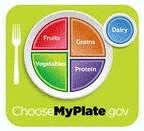Nutrition and Health Sciences, Department of

Department of Nutrition and Health Sciences: Dissertations, Theses, and Student Research
Date of this Version
12-2015
Document Type
Dissertation
Citation
Hall, E. (2015). An evaluation and exploration of nutrition education in elementary schools. (PhD dissertation). University of Nebraska-Lincoln, Lincoln, NE.
Abstract
Childhood obesity is a significant problem in the United States. Obese children suffer from a variety of physical, emotional, and social consequences. To curb or reduce this problem, school-based nutrition education interventions have become more common. However, little research has been conducted concerning nutrition-related socioeconomic disparities in behavior change constructs for low and high income children, which is integral to forming appropriate theory-based interventions and allocating resources appropriately. Research into classroom teachers’ perspectives is also an area in need of strengthening to better inform interventions. Finally, the School Enrichment Kit Program (SEKP), a current interactive, classroom-based, nutrition and physical activity curriculum for K-2 grades is a unique intervention that necessitates evaluation to justify further use. The purposes of this study were to: (a) develop, validate, and test a survey instrument measuring behavior, self-efficacy, and knowledge for elementary students, (b) determine differences in behavior, self-efficacy, and knowledge for low and high income students, and the relationships between these constructs, (c) evaluate a novel K-2 nutrition and physical activity curricula, and (d) explore teachers’ experience of nutrition education. Among all four studies, a total of 10 teachers and 482 students participated. Surveys with students were conducted in their regular classrooms and observations, interviews, and document analysis were conducted with teachers. The survey developed in this study was found to be a valid and reliable tool for nutrition and physical activity measurement in fifth grade students. Comparison of low and high income schools demonstrated significantly lower knowledge and behavior scores in low income, as well as differences in construct relationships. SEKP was determined to be effective at improving vegetable consumption, breakfast consumption, and some knowledge. Finally, teachers identified five themes as part of their nutrition education experience: Meaningful roles, importance, mutual perceived influences, supplementary education and motivation, and barriers. These studies demonstrate that more resources may need to be allocated to the socioeconomically disadvantaged, the interactive SEKP is a promising intervention and should be further investigated, and teachers are highly invested in nutrition education, so efforts should be made to reduce their barriers.
Advisors: Julie A. Albrecht and Weiwen Chai


Comments
A dissertation Presented to the Faculty of The Graduate College at the University of Nebraska In Partial Fulfillment of Requirements For the Degree of Doctor of Philosophy, Major: Human Sciences, Under the Supervision of Professors Julie A. Albrecht and Weiwen Chai. Lincoln, Nebraska: October 2015
Copyright (c) 2015 Elisha Hall